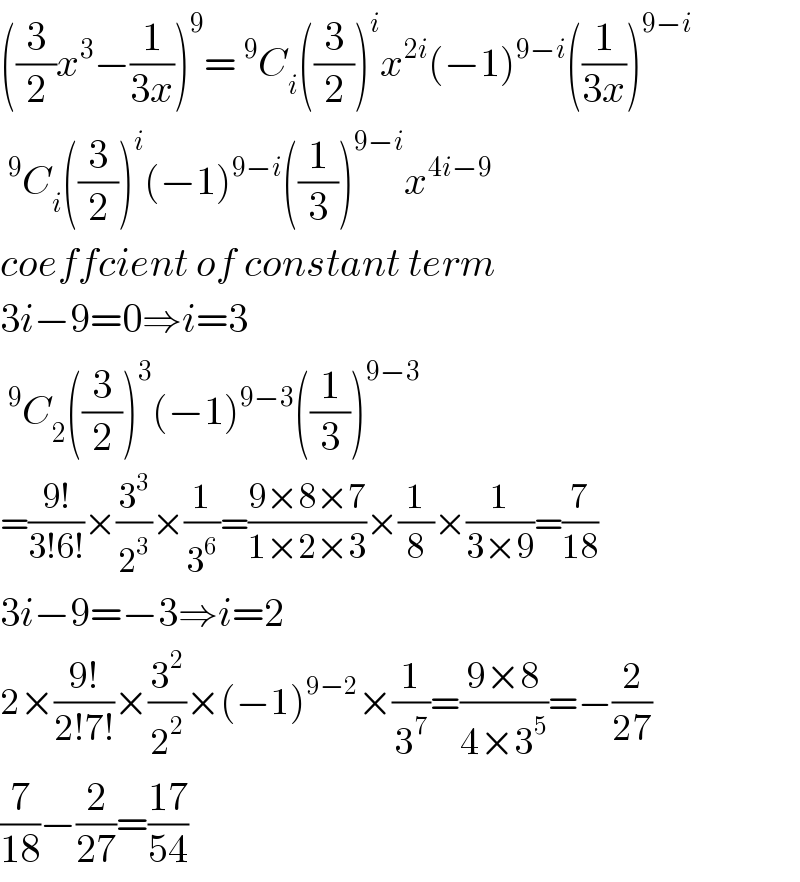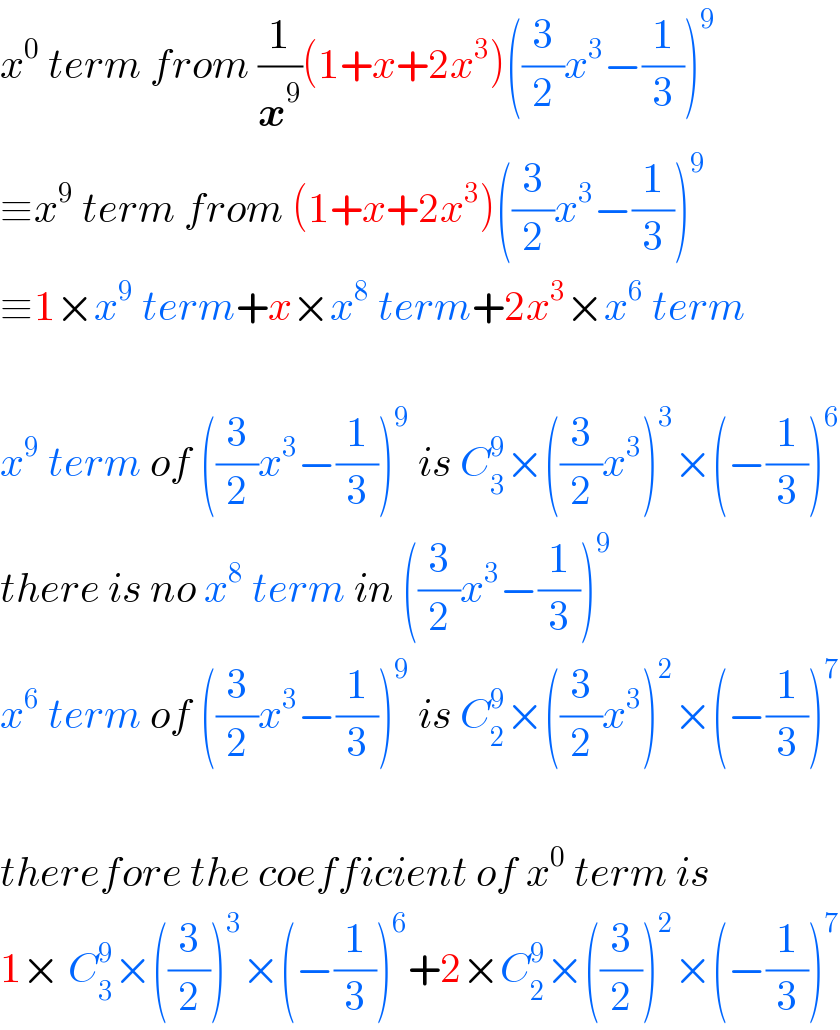
Question and Answers Forum
Question Number 26733 by math solver last updated on 28/Dec/17

Commented by prakash jain last updated on 28/Dec/17

Answered by mrW1 last updated on 28/Dec/17
![(1+x+2x^3 )((3/2)x^2 −(1/(3x)))^9 =(1/x^9 )(1+x+2x^3 )((3/2)x^3 −(1/3))^9 1×((9×8×7)/(3×2×1))×((3/2))^3 (−(1/3))^6 +2×((9×8)/(2×1))×((3/2))^2 (−(1/3))^7 =((3/2))^2 (−(1/3))^6 [1×((9×8×7)/(3×2×1))×((3/2))+2×((9×8)/(2×1))×(−(1/3))] =((3/2))^2 (−(1/3))^6 (126−24) =(1/2^2 )×(1/3^4 )×102 =((17)/(54)) ⇒Answer (A)](Q26736.png)
Commented by math solver last updated on 28/Dec/17

Commented by math solver last updated on 28/Dec/17

Commented by mrW1 last updated on 28/Dec/17

